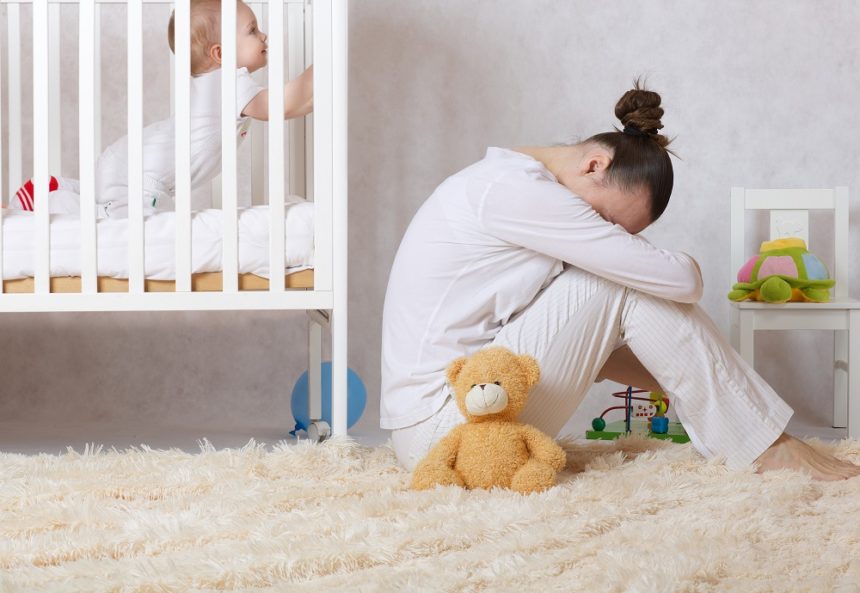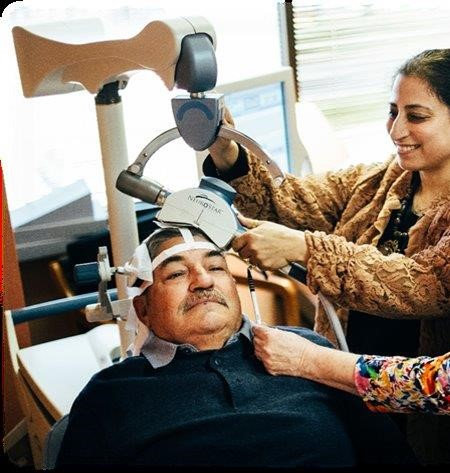
Equine Therapy
What is Equine Therapy?
According to CRC Health, equine therapy is a form of experiential therapy that involves interactions between patients and horses. With equine therapy, patients are accompanied by a mental health professional and do engagement tasks with the horses while also meeting the basic needs of the animal. Equine therapy may include feeding and grooming the horses. Equine therapy has proven to be effective in treating a variety of mental illnesses, including anxiety, depression, and chronic stress.
According to CRC Health, equine therapy has the potential to build assertiveness, emotional awareness, empathy, stress tolerance, flexibility, impulse control, problem-solving skills, self-actualization, independence, self-regard, social responsibility, interpersonal relationships.
Equine therapy is different than traditional therapy because it offers patients an opportunity to engage in nature and move around while expressing their emotions. Equine therapy has been useful with all populations; however, it is favored by young children and older adults. For more information about equine therapy, its benefits or to schedule an appointment, please call us at 469.714.0006.
Written by Aly Bowles – Social Media Coordinator
https://www.crchealth.com/types-of-therapy/what-is-equine-therapy/

Did you know May is National Maternal Depression Month?
National Maternal Depression is recognized in the month of May to bring awareness to maternal mental health disorders. Postpartum depression is a well-known mood disorder that affects mothers after childbirth. Postpartum depression occurs more often than one would imagine and is often unrecognized or diagnosed. When a mother is suffering from postpartum depression, she may experience significant symptoms related to crying, sadness, insomnia, loss of energy, withdrawn, unable to bond with the by, thoughts of harming self and/or baby, and an inability to care herself and/or the child.
Postpartum depression can affect any woman who has given birth to a child. Although some women are more prone to suffer from postpartum depression than others based upon certain risk factors. Postpartum depression is a treatable condition that requires diagnosing by healthcare provider. If left untreated, postpartum depression can have an enduring effect on the physical and mental health of the mother.
If someone you know may be suffering from postpartum depression, encourage them to seek medical attention immediately. Provide support to the mother and child; while offering assistance when the mother needs it.

Understanding TMS
An average of 14 million adults in the U.S. struggle with depression daily. Many of those who battle depression have tried multiple medications that are either ineffective or produce unbearable side effects. Transcranial Magnetic Stimulation (TMS) is an effective, noninvasive alternative treatment to depression.
TMS therapy stimulates the pleasure center of our brain, which controls our mood among many other functions. Deep neurostimulation has been proven to lift the “fog” of depression allowing people to enjoy their lives to the fullest.
I would like you to take a few minutes of your time to view Michelle’s testimonial regarding her experience with TMS. If you or a loved one are battling depression please consider TMS. Do not hesitate to contact us today for more information about TMS therapy! “We delight in the beauty of the butterfly, but rarely admit the changes it has gone through to achieve that beauty.” ― Maya Angelou.

Military Appreciation Month
As we honor our men and women for Military Appreciation Month, this is a time to homage to those who are servicing or have provided services to our U.S. military. These men and women give so much of themselves, make personal sacrifices, while often times not asking for anything in return.
As our service men and women protect our country, often times, they will find themselves going to war in other countries. These men and women are deployed to other countries for months at a time, leaving their families and children behind. Once the soldier’s duties are completed and they return home, the transition and redeployment back into “normal society” and family life may seem difficult and rather challenging.
Soldiers may be faced with encounters of but not limited to: difficulties adjusting to being home, feeling like an outsider, anxiousness, struggling with communicating feelings, and trouble sleeping. Although the feelings they are experiencing is normal, it will take time, patience, and the strength to not give up! If additional help is needed with readjusting, seek out professional help immediately.

Understanding Health Anxiety
Health anxiety is a form of anxiety that causes an individual to be preoccupied with symptoms within their body and constantly fear deadly and harmful diseases. Individuals with health anxiety often feel helpless with their symptoms and even after being told they are fine by a professional, they have an issue believing it is true.
With health anxiety, an individual has repetitive, recurring thoughts about illness. These thoughts are challenging to get rid of. A common myth about hypochondriacs, or someone who suffer from health anxiety, is that they are constantly going to the doctor. Some hypochondriacs fear the doctor and worry about the possible diagnoses they will receive.
The White Plains Anxiety and Phobia Center created a list of 6 principles to help those experiencing health anxiety
- Learn the truth about yourself—the particular physical symptoms you characteristically develop, over and over again, in the face of stress. For example, fatigue, back pain, panic attacks, palpitations, etc. These accustomed complaints are not likely to reflect some new physical disorder.
- Confront your fears. Thinking the unthinkable diminishes fear. (This is an allusion to the “Nightmare Fantasy” in which patients are asked to imagine, in detail, the worst-case scenario of their fears. It is possible to desensitize to a fear of illness and death by fantasizing.)
- Avoid checking and the search for empty reassurance. (Patients are not allowed to ask the same question twice.)
- Think of the odds against being desperately ill rather than the stakes. (“Wouldn’t it be awful if I died suddenly from a ruptured aneurysm?” “Yes, but what are the chances of that happening?”)
- Do not seek absolute certainty or safety.
- Live in a healthy way. (Including principles of eating properly and exercising.)
Sources:
Clark, David A.; & Radomsky, Adam S. (2014). Introduction: A global perspective on unwanted intrusive thoughts. Journal of Obsessive-Compulsive and Related Disorders. Available online 18 February 2014. DOI: 10.1016/j.jocrd.2014.02.001 http://www.sciencedirect.com/science/article/pii/S2211364914000128

How to Emotionally Support Foster Children
May is National Foster Care Month. It was initiated by President Ronal Regan in 1988 when he proclaimed the month of May as National Foster Care Month, creating a platform for recognizing foster parents and supporting them in their efforts in caring for children and youth in foster care. Foster care parents play an intricate role of nurturing, supporting and providing for the well-being of children.
According to the Child Welfare Information Gateway, there are over 440,000 children and youth in foster care. The number of children entering into foster care increases daily for reasons that may be related to abuse and neglect, substance use, mental health, financial struggles, etc.
Foster care is fundamental in providing a means to the reunification process that can create positive outcomes for children and families. In order for foster care families to be successful in their efforts to care for children and youth, they will require support from the child welfare professionals, the community, families, and the government.
To support foster care, get involved! Learn how you can support foster care in your community. In addition, consider becoming a foster care parent. Your decision to become a foster care parent can change the lives of so many children and youth that enter into care.

Simple Steps for Dating Safe
Ladies and Gentlemen whether you are at a bar, restaurant or in any public setting, keep yourself safe on a date or out with friends by doing these simple things you will be safe.
- Never leave your drink unattended.
- Do not accept open-container drinks from anyone but a bartender or server.
- If you are accepting a drink, make sure it is from an unopened container and that you open the container yourself.
- Be wary about accepting drinks from anyone you do not know well or long enough to trust.
- Attend parties or visit bars with a group of friends, arranging beforehand to watch each other’s drinks.
- If you arrive as a group, leave as a group.
- Watch out for your friends. If a friend shows symptoms of date-rape drug ingestion, seek medical attention immediately.
- Notify other females/males you know about the effects of these dangerous drugs.
- If you think that you have been a victim, notify the authorities immediately.
If by any chance you believe you were violated in any manner call 911 or go the nearest hospital emergency department for treatment. If you want to report the incident, call the police and preserve the evidence do not shower, change clothes, or brush your teeth until you get a medical exam.
Try not to urinate; I know this may be hard but very important, until the medical/legal evidence has been collected at the hospital. Your urine can be tested for the presence of sedating drugs. The sooner you get to the hospital, the more likely the drug will be found in your system. Get emotional support and help, do be ashamed, or embarrassed.
Written By- Maria Romeo – Therapist

How to Spend Time Away from Your Cellphone
Ever wonder what you could do instead of being on your smartphone? The average American spends more than 3 hours on a smartphone per day, and most users is dedicated to messaging and social media, as well as navigation. Here’s a list of things you may love to do without your smartphone which could ease your stress levels, anxiety, and depression.
- Purchase an adult coloring book or even a coloring book for kids and let your inner child come out and play. Coloring may reduce your anxiety and stress.
- Take a walk without your device and let nature be your music
- Take a nap. A quick nap may help ease your stress and anxiety.
- Take time to meditate. Having quiet time may help you to reconnect with yourself
- Join a yoga class it could help to keep you grounded
- Go to lunch or dinner with a friend you haven’t seen in a while. Spending time with friends can help you feel more connected and not so isolated. Isolating may lead to depression.
- Go to a movie you been wanting to see ask a friend go with you
- Plan a date with your spouse or partner leave your phones at home and reconnect with one another.
- Take a drive and don’t use your navigation and see where you end up
In our busy world of technology today we can sometime forget to slow down and put our phones away. Challenge yourself to take some time out for yourself.
Written By- Piper Dawn- Therapist

The Emotional Impact of Having an STD
April is STD Awareness Month, in an effort to bring attention across America to the prevention, testing, and treatment for sexually transmitted diseases (STDs). Sexually transmitted disease is a societal concern that if not addressed nationally, it can have a greater impact for individuals that can lead to other medical and mental health concerns.
With the increase of STDs on the rise, it is imperative that people have a clear understanding about the different diseases, measures needed to prevent contracting a STD, and becoming knowledgeable about the STDs that are curable and treatable. Studies have shown that an individual’s mental health affects one’s ability to prevent and control the spread of STDs.
According to the MAYO Clinic “women with STDs experience frustration, anxiety, anger, fear of rejection, isolation, guilt, embarrassment, shame and feelings of physical filth or contamination. These negative psychological effects are potentially more important than the medical effects of the disease.”
Certain STDs if left untreated can cause mental illness and even death. Taking charge of your sexual health is important. So, if you are sexually active, you are encouraged to get tested for STDs. Knowing your status is better than not knowing all.
Written by therapist – Kim Homes

Mental Health and Wellness in Minority Populations
It is no secret that there is a lot of stigma associated with mental health and wellness. People find it hard to talk to a provider about their struggles with issues like depression and anxiety. Taking care of our mental health is so much more than taking medications for these concerns. Treatment should include regular visits to a psychiatrist and therapist or counselor who can help us work on skills building, emotion regulation and effective communication.
People who belong to racial, ethnic, religious and sexual minorities often struggle to get mental health help. According to the National Alliance on Mental Illness (NAMI, 2017), there are many reasons that this struggle might exist:
- Transportation issues, difficulty finding childcare/taking time off work
- The belief that mental health treatment “doesn’t work”
- The high level of mental health stigma
- Language barriers and an insufficient number of providers who speak languages other than English
- A lack of adequate health insurance coverage
There are many ways that we can help our friends and neighbors of minority groups get the help they need:
- Encourage mental health organizations to include minorities on staff.
- Share information you’ve learned about accessing quality care to others.
- Try to be more open and understanding towards what minority communities might be experiencing that you might not.
Here at Exult Healthcare, we specialize in helping those who belong to a number of different minority groups. Whether language, culture, religion, ability or sexual orientation differences, we strive to have diverse providers who create an environment of trust and support. If you or someone you know is looking for a safe place to access help for your mental health needs, call us at 469-714-0006.
https://www.nami.org/Blogs/NAMI-Blog/July-2017/Disparities-Within-Minority-Mental-Health-Care
By Cynthia Dsauza, Ph.D., LMFT-S

